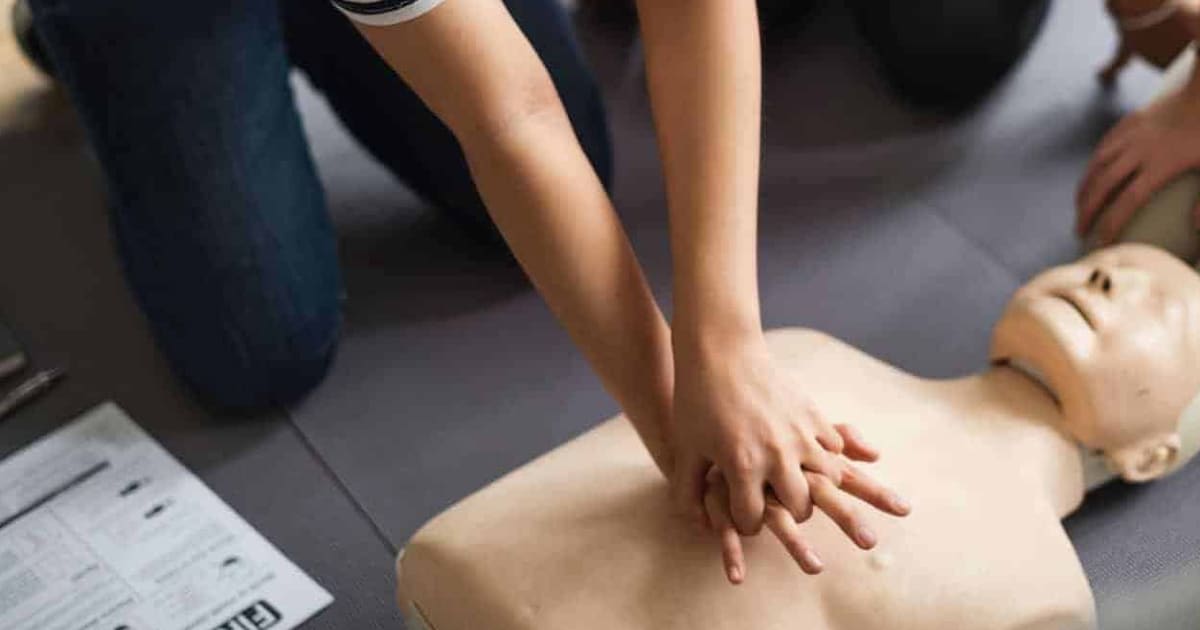Preparing for Advanced Life Support (ALS) Course

Advanced Life Support (ALS) certification tends to be desired or mandatory in many job applications and is essential to have as your career progresses in the NHS.
The ALS course teaches the knowledge and skills required to:
- recognize and treat the deteriorating patient using a structured ABCDE approach;
- deliver standardized CPR in adults;
- manage a cardiac arrest by working with a multidisciplinary team in an emergency situation;
- utilize non-technical skills to facilitate strong team leadership and effective team membership.
There are somethings to keep in mind before you decide to book an ALS course. Firstly you need to ensure you have at least gotten an idea of the framework of the NHS before applying, or that you at least have some prior experience when it comes to CPR/defibrillator use back home. Secondly you need time to prepare.
You cannot go into this thinking you will be more than prepared by just attending the class or completing the modules. There will be a book sent out to you about 4-6 weeks before the class that you need to at least generally read. You don’t have to memorize every little bit, but understanding the algorithms outlined are key.
What courses are available?
You can either book an eALS course or a full ALS course.
- eALS is a one day face to face course wherein you complete a series of modules and a pre-course MCQ before you can attend the single day course where the rest of your course is completed. The day you attend will run through the procedures and steps of approaching a variety of patients and utilizing the algorithms you should hopefully have memorized and understood by now. At the end of the day, you will face the CASTest (Cardiac Arrest Simulations Test) and post course MCQ. Success in both with get you your certification.
- ALS requires you to come and attend the course for 2 days. The first day covers what you’d otherwise be doing online if you opted for the eALS course as well as some simulations. You’d have your first MCQ at the end of the first day. The second day will run you through more simulations and scenarios, again ending with the CASTest and post course MCQ.
How do I book a course?
First see if your Trust offers their own ALS course. If so, all you’ll need to do is visit the Resus office in your hospital to check for availability and complete the paperwork needed. If not, you will need to check for a location and date on the ResusUK website. Email the address given on the search to ensure availability. Once you’ve managed something, you’ll need to complete and submit a form for registration.
How much will it cost?
Cost varies if you’re attending within your own hospital or outside of it, or if you’re attending an eALS course or an ALS one. Within your own hospital or eALS courses tend to be less expensive versus attending outside your own hospital or ALS courses. You can generally expect to pay somewhere between £300-500.
What am I being assessed on?
Throughout the course you will be silently assessed on
- Your airway management skills
- Your ability to give high-quality CPR
- Your ability to perform safe defibrillation
These things must first be satisfactory to the instructors before you’ll be allowed to proceed to the post-course MCQ and CASTest. You will run through many scenarios and simulations throughout your course that will help you to prepare for your exam, but you can always get an idea from the ResusUK Cardiac Arrest Management Demo which you can find on YouTube.
Frequently Asked Questions
How long will my certification be valid for?
The validity lasts four years from the date of your course .
Will I get CPD points for this?
Yes. ALS will garner you 10 CPD points, while eALS will get you 5.
I have a certification for ALS by the European Resuscitation Council (ERC). Will this be accepted?
Yes, ERC ALS courses are accepted and recognized by ResusUK.
I have a certification for ALS by the Australian Resuscitation Council (ARC). Will this be accepted?
Yes, ARC ALS courses are accepted and recognized by ResusUK.
I have a certification for ALS by the American Heart Association (AHA). Will this be accepted?
No, unfortunately, AHA ALS courses are not accepted and recognized by ResusUK.
Is the eALS course less valid than the full ALS?
No. Both are equally valid.
If I fail the course, do I get a refund?
No you do not. On the day they will arrange for a re-attempt if you fail at the simulation test.
I’ve heard some testing centers are better than others.
All centers are held to the same standard, and there is no one ‘better’ than the other.
Will my Trust cover the cost of the course?
This depends wholly and solely if your Trust has allocated some sort of study budget from which you can claim expenses. Typically this is not an issue if you are doing the course in your Trust, but if it is done externally, you may need to explain to your Trust why you did the course elsewhere rather than with them as the cost often is more if done externally.
Can I retake the CASTest if I fail it once?
You will be allowed one retake the day of the exam with another examiner group. If you, however, fail again, there will be no further attempts allowed that day, but you can opt to retake the CASTest within 3 months. You may or may not have to retake the entire course.
Do I have to pass MCQs?
Yes, a score of 75% is required.
Should I do the eALS or ALS?
I opted for eALS as my first ALS course, although many recommended against it, saying I’d learn better in a classroom environment. I know my way of learning, however, and the online modules allowed me to break down the materials and sections over time and let me spend as much time as I needed to understand certain topics and methods properly. Do what works best for how you study.
Tips and Advice
- Don’t take this lightly. Many instructors will tell you that doctors tend to fail more often than other healthcare professionals because we try to start treating the patient rather than following the steps.
- Stay calm. Easier said than done, right? The staff are there to help and support you, so don’t be scared of them.
- Be confident and be loud. There will be moments when you will have to clearly state certain commands. If you are not naturally a loud individual, this may be difficult for you, so it is important to practice as much as you can before the exam.
- Don’t stress over the MCQs too much. There is no negative marking, so when in doubt, put down any response.
- Before attending the course, ask around if anyone you work with has either recently attended or is well-versed and practice with them a few times.
- Enjoy yourself. The staff will work hard to help you relax and understand the material, so just go with the flow and you’ll be fine.
Good luck!

